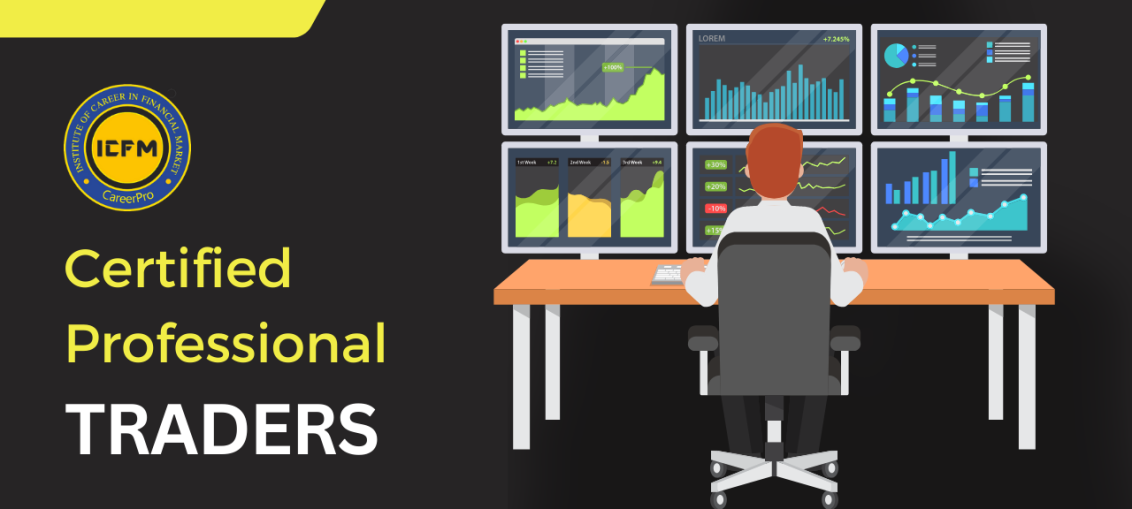
In the dynamic realm of finance, Certified professional traders play a pivotal role. These individuals possess a unique skill set that enables them to navigate the complexities of financial markets. In this article, we will delve into the world of professional traders, shedding light on their responsibilities, strategies, and the path to becoming one. Whether you’re an aspiring trader or simply curious about this fascinating profession, read on to discover what it takes to be a professional trader.
Understanding the Role of a Professional Trader (H1)
The Basics
Professional traders are individuals or entities that buy and sell financial instruments in various markets with the goal of generating profits. They can operate in a variety of markets, including stocks, commodities, foreign exchange, and cryptocurrencies.
Responsibilities and Duties
Professional traders are responsible for making informed decisions about when to buy or sell assets. They must analyze market data, economic indicators, and news events to develop effective trading strategies.
Risk Management
One of the critical aspects of a professional trader’s job is managing risk. They employ risk management techniques to protect their capital and minimize losses.
The Path to Becoming a Professional Trader
Education and Training
Becoming a Certified professional trader often begins with a strong educational foundation. Many traders hold degrees in finance, economics, or related fields. They also undergo specialized training programs to acquire the necessary skills.
Gaining Experience
Experience is invaluable in the world of trading. Aspiring traders often start by working as interns or junior traders at financial institutions. This hands-on experience helps them hone their skills.
Developing a Trading Strategy
Every professional trader develops a unique trading strategy that suits their risk tolerance and market expertise. These strategies can range from day trading to long-term investing.
Strategies Employed by Professional Traders
Day Trading
Day traders buy and sell assets within the same trading day. They rely on short-term price movements and technical analysis to make quick profits.
Swing Trading
Swing traders aim to capture price swings over a period of days or weeks. They use technical and fundamental analysis to identify potential entry and exit points.
Algorithmic Trading
Some professional traders utilize algorithms to execute trades automatically. These algorithms are programmed to follow specific rules and execute orders at optimal times.
Challenges Faced by Professional Traders
Market Volatility
Financial markets can be highly volatile, presenting both opportunities and risks. Professional traders must adapt to changing market conditions.
Emotional Discipline
Controlling emotions, such as fear and greed, is crucial for traders. Emotional decisions can lead to substantial losses.
Continuous Learning
The financial industry evolves rapidly. Professional traders must stay updated with market trends, new technologies, and regulations.
Conclusion
In conclusion, the life of a professional trader course is filled with challenges and opportunities. These individuals use their expertise to navigate the intricate world of finance, employing various strategies to achieve their financial goals. Whether you’re considering a career as a professional trader or simply intrigued by the profession, remember that success in this field requires dedication, continuous learning, and emotional discipline.
FAQs
1. What qualifications are required to become a professional trader?
To become a professional trader, a strong educational background in finance or related fields is beneficial. However, practical experience and the ability to manage risk effectively are equally important.
2. Are there any age restrictions for becoming a professional trader?
There are no specific age restrictions for becoming a professional trader. However, individuals must meet the legal age requirements to participate in financial markets.
3. Can I become a professional trader without a formal education?
While a formal education can be helpful, it is possible to become a professional trader through self-study, mentorship, and gaining practical experience in the field.
4. How do professional traders handle losses?
Professional traders manage losses through effective risk management techniques, which may include setting stop-loss orders and diversifying their portfolios.
5. Is algorithmic trading suitable for beginners?
Algorithmic trading can be complex and is often better suited for experienced traders who have a solid understanding of market dynamics and programming skills.
Tags :- professional trader, professional trader course, Certified professional trader, Certified professional traders,